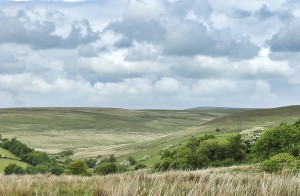Support us from £3/month
We deal with almost 1000 cases a year assisting communities, groups and individuals in protecting their local spaces and paths in all parts of England and Wales. Can you help us by joining as a member?
We welcome the new measures brought into force in Wales on 1 April. These will give better protection to all registered common land—more than eight per cent of the land area of Wales.
Welsh ministers have enacted part 3 of the Commons Act 2006, which sets out the process for obtaining consent from the Minister for Environment and Sustainable Development for certain works on common land. These works include fences, buildings, ditches and laying of roadways. Ministerial consent is needed in addition to any planning consent, in recognition of the special qualities of common land.
Until now, the consent regime for works on common land has operated under the Law of Property Act 1925. The 2006 Act updates that law, providing better protection for commons. It reinforces and clarifies existing protection against encroachment and unauthorised development. A mechanism for the provision of exchange land is also to be brought into force.
There are about 175,000 hectares of common land in Wales, ranging from the uplands of Snowdonia, the Brecon Beacons and Pumlumon, to the coastal commons of Ogmore and Gower.
Says Nicola Hodgson, our case officer: ‘We are very pleased that common land in Wales will now be better protected. There are no exemptions for works requiring consent (unlike in England where exceptions are made for temporary fencing for instance), and no fees will be charged for applications.
‘The introduction of these sections of the Commons Act 2006 will help to ensure the unique and special character of unenclosed common land is preserved.’
Adds David Bateman, spokesman in Wales for the Open Spaces Society: ‘We are delighted that the Welsh Government has decided to implement these provisions of the Commons Act 2006. These clarify the process for obtaining the environment minister’s consent for works on common land, and spell out much more clearly which works require such consent. They also provide a better system for the exchange of common land when major works are proposed there, ensuring that the public interest is taken into consideration.
‘We believe these provisions will give greater protection to the commons of Wales, which are a unique resource for their natural beauty, landscape, ecology and history, and for public enjoyment’.
The guidance and application forms for consent are available on the Planning Inspectorate Wales web-pages on the Planning Portal here.

